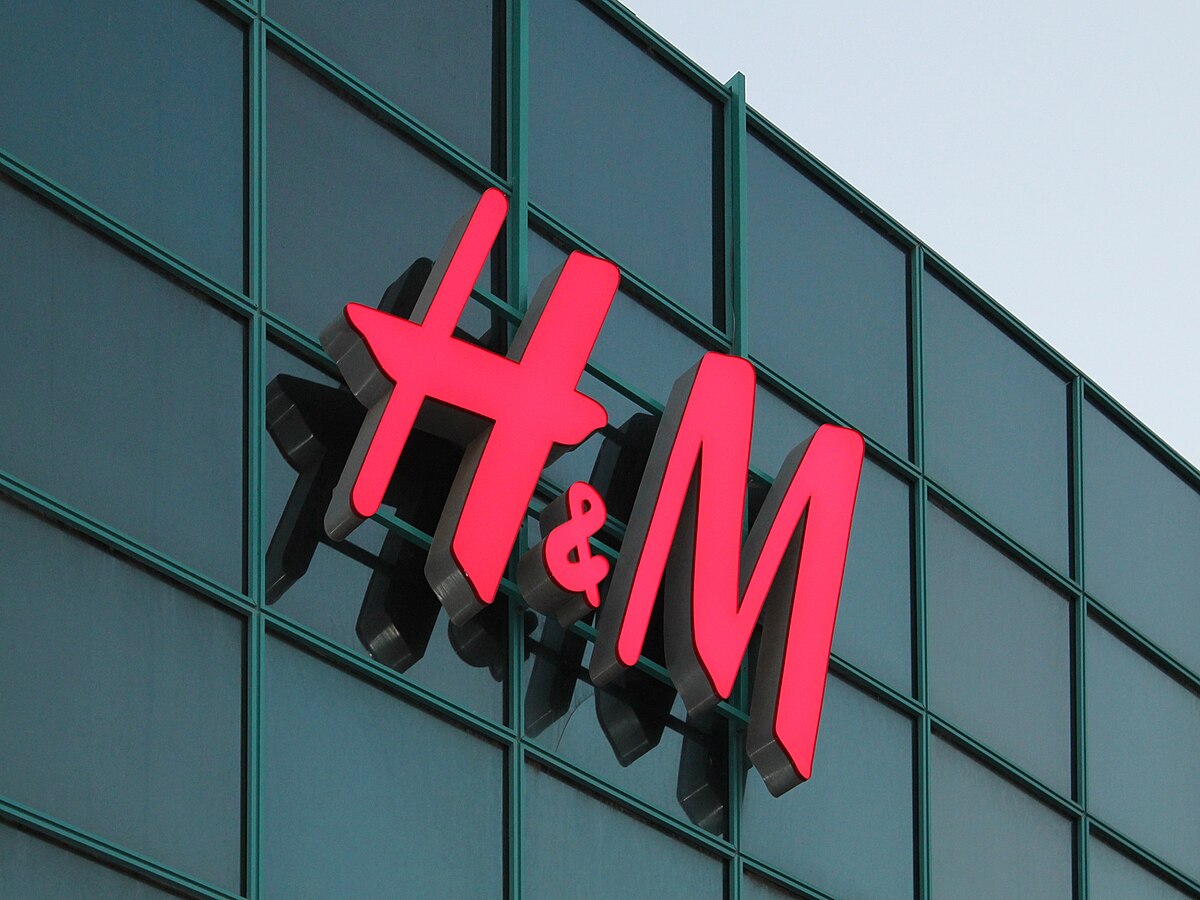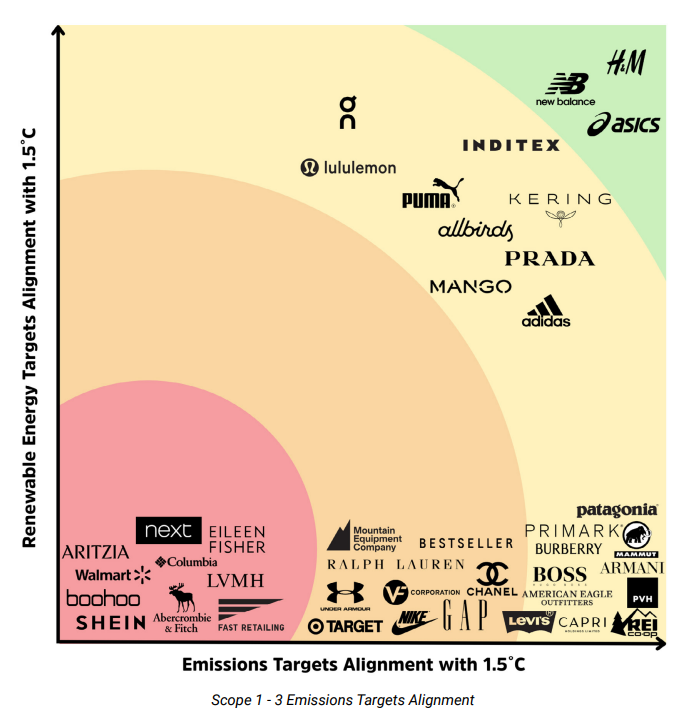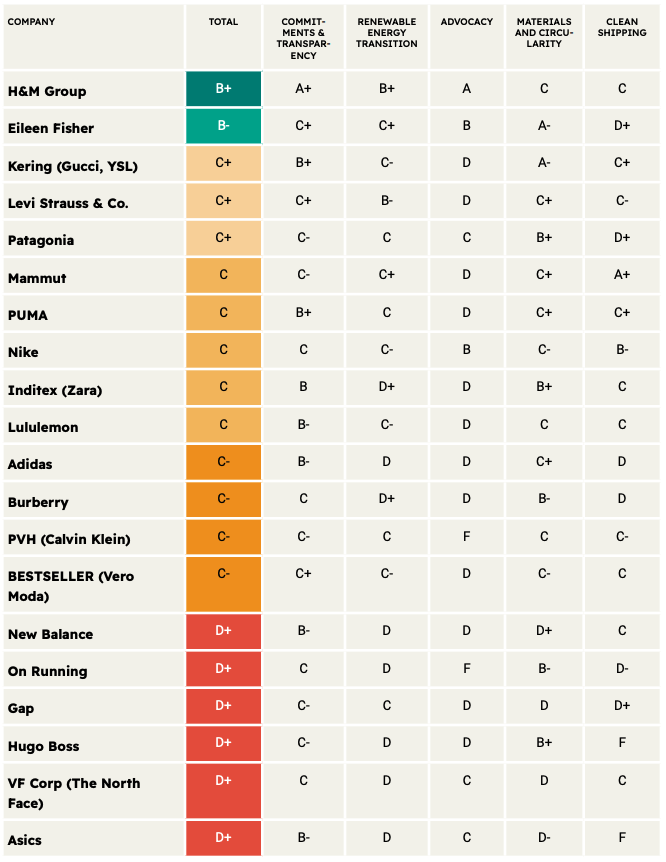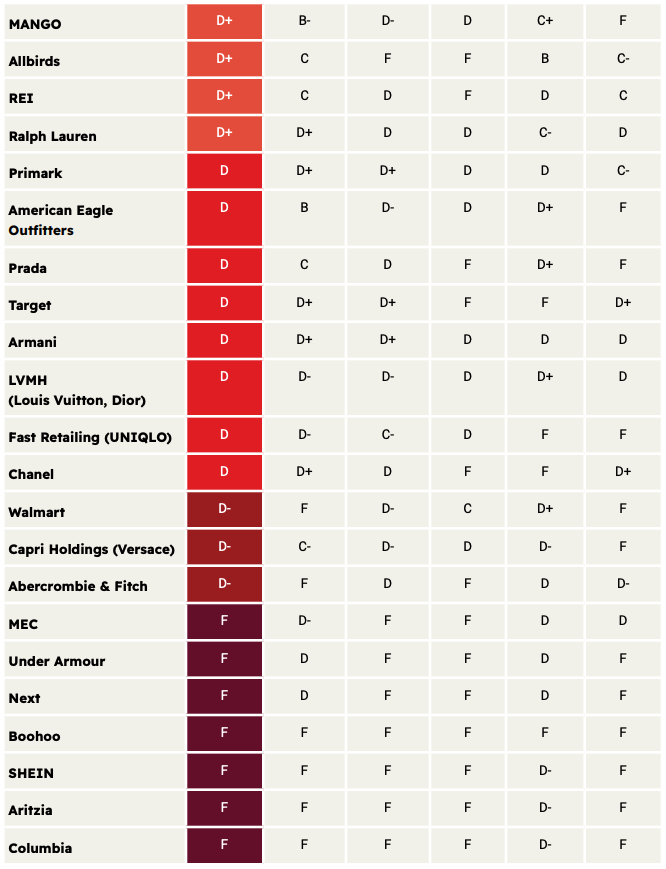
The fashion industry's climate action gap is widening, with H&M emerging as a clear front-runner among its peers. (Photo: Wikipedia Commons )
Non-government group Stand.earth has released its latest ranking of fashion companies’ climate action, with Swedish brand H&M claiming the top spot for the second time in a row. Meanwhile, rapidly growing Chinese fast fashion brand Shein ranked third from the bottom, on par with U.S. sportswear brand Under Armour.
H&M tops fashion climate ranking again
According to the report, fashion production accounted for 4% of global carbon emissions in 2024, more than the entire aviation industry. Most emissions across the fashion supply chain come from fossil fuel use, particularly during fabric manufacturing, which alone makes up over half of the sector's total emissions.
The study evaluated 42 major global fashion brands across four categories: fast fashion, mass market/ retailers, sportswear and outdoor, and luxury. Brands were scored in five key areas: climate commitments and transparency, renewable energy transition, climate advocacy, use of low-carbon and deforestation-free materials, and green shipping.
H&M received a B+ overall, the highest grade awarded since the survey began. The report commented on H&M’s strong performance in climate commitment and transparency, as well as its advocacy work. It also highlighted H&M’s financial support and assistance for decarbonizing its supply chain in Bangladesh.
The report also mentioned Lululemon, a Canadian activewear brand, for its ambitious plan to source 50% of its supply chain electricity from renewable sources by 2030. The brand was noted for making significant progress toward that target.

H&M tops emissions reduction ranking, while Shein ranks third from the bottom. (Source: Stand.earth)
Shein’s emissions surge; Under Armour scores an 'F'
At the bottom of the ranking, Stand.earth singled out Shein for a sharp 170% increase in its absolute emissions over the past two years—now equivalent to the annual emissions of Lebanon. A major factor is Shein’s logistics strategy, which relies heavily on airfreight with individually packaged parcels, driving up its carbon footprint.
Shein received an overall F grade, along with Under Armour, U.S. outdoor brand Columbia, and British fashion retailer Boohoo. These companies were marked primarily for lacking climate or energy targets and failing to present decarbonization plans for their supply chains.
Brands such as Puma, Nike, and Adidas—mostly scored in the C to C- range. Spain’s Inditex, parent company of Zara, earned a C; U.S.-based Gap received a D+; and Fast Retailing, the Japanese parent company of Uniqlo, was given a D, signaling relatively poor performance.
Todd Paglia, executive director of Stand.earth, noted a growing divide in the fashion industry’s decarbonization efforts. While a few companies are making progress, the majority are failing to support energy transitions in their supply chains—leaving countries like Bangladesh, India, Pakistan, Vietnam, and Cambodia, which are highly vulnerable to climate change, in increasingly precarious positions.
Full brand rankings:


(Chart: Stand.earth)
Source: Stand.earth, Bloomberg
.jpg)

